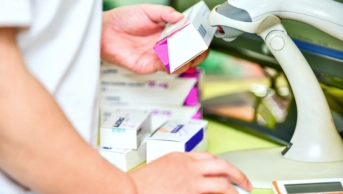
Jerome Bertin
The body that runs the falsified medicines directive (FMD) says medicines regulators in individual countries should begin enforcing its compliance.
In a statement published on 10 July 2019, the European Medicines Verification Organisation (EMVO) — which runs the European Medicines Verification System — said that even though five months had now passed since the FMD came into force in February 2019, a “significant number” of manufacturers and pharmacies had yet to connect to the system.
According to the statement, an estimated 40% of manufacturers and 25% “supply chain actors” — including pharmacies, hospitals and wholesalers — across Europe have not yet connected.
The EMVO listed a number of non-compliance scenarios which, it said, should be targeted by national regulators, which have the power to enforce compliance. These included a focus on those who have not connected to the system at all; manufacturers who are connected but do not upload serialisation data; and end-users who are connected but do not scan products or properly train their staff.
“Both the EMVO and National Medicines Verification Organisations stand ready to supply all necessary and available information to National Competent Authorities” regarding non-compliant manufacturers and end-users, it added.
Data from SecurMed, the UK medicines verification organisation, showed that, as of 5 July 2019, 71% (10,172) of the UK’s 14,313 community pharmacies were connected to the UK FMD system
Jerome Bertin, general manager of SecurMed, which manages the UK’s medicines verification system, told The Pharmaceutical Journal that the ten largest drug wholesalers in the UK — which together represent 85% of wholesale volume — have registered.
“Of the remaining 1,500 wholesalers, we estimate about 40% of these so far have registered with SecurMed,” he added.
Bertin also said that Brexit uncertainty was having an impact on uptake and on when increased enforcement may be introduced.
In the UK, the General Pharmaceutical Council (GPhC) and Medicines and Healthcare products Regulatory Agency (MHRA) announced in January 2019 that existing pharmacy inspections would be used to monitor FMD compliance.
In a joint statement, the bodies said they would use the GPhC’s regulatory powers to ensure pharmacies met FMD requirements, while enforcement action — including “as a last resort, criminal prosecution for the most serious, persistent breaches” — would lie with the MHRA.
A spokesperson for the MHRA told The Pharmaceutical Journal that it “continues to work with stakeholders across the UK supply chain to seek compliance whilst maintaining continuity of supply and supply chain security”.
“We are inspecting manufacturers and wholesalers against the FMD requirements as part of their routine inspections programme,” they added.
“We are also supporting other regulators, such as the GPhC, across the UK to include the FMD safety features requirements in their inspections process.”


